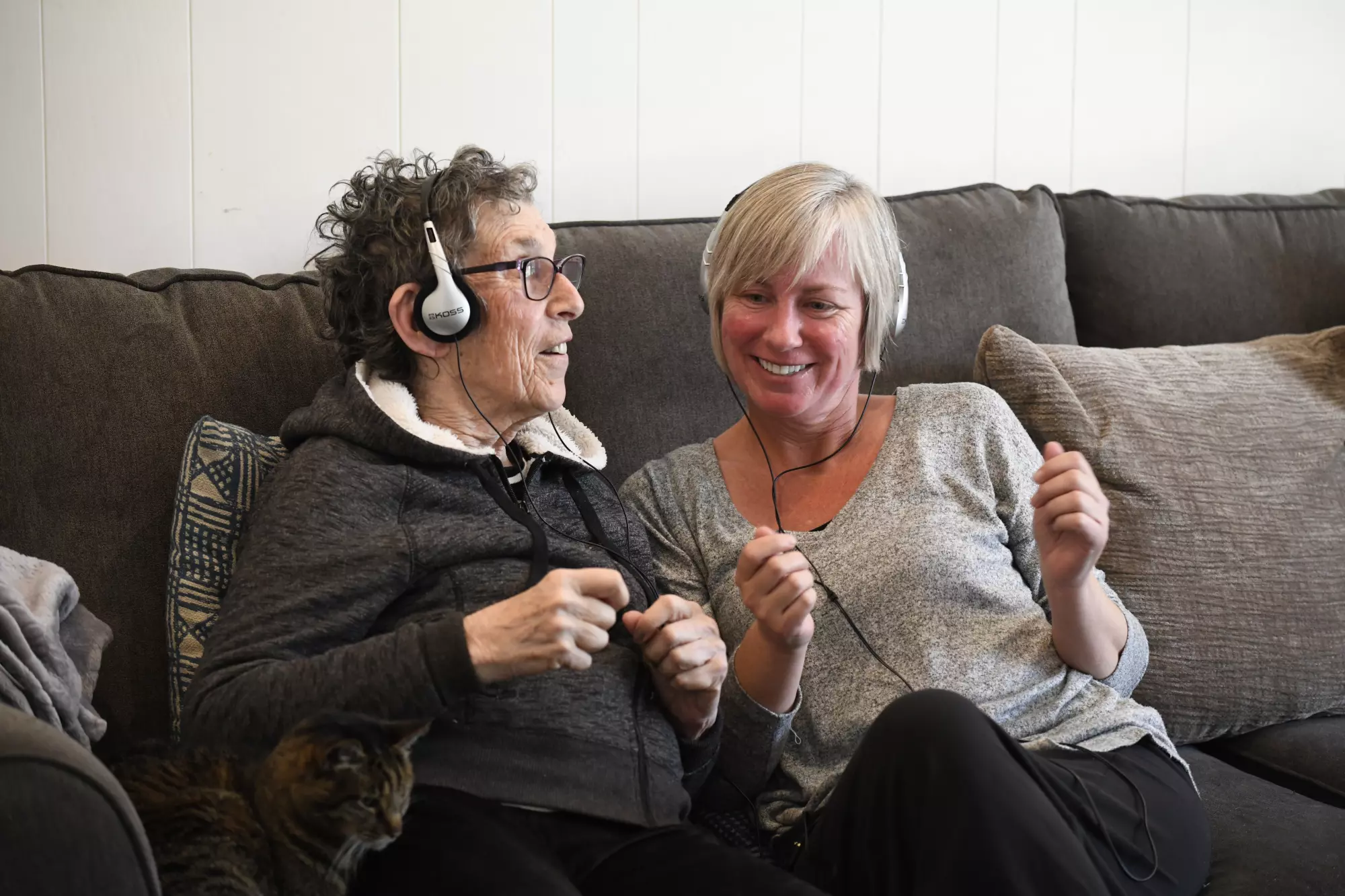Music Therapy Can Also Be a New Form of Respite for Caregivers
By Lauren J. Mapp
When a favorite song starts to play, what does it remind you of? Maybe it gives you flashbacks to road trips in college, your high school prom or your wedding day. It may just give you an overall sense of happiness.
Whatever it is, many people have a deep connection between their memories and the music they were listening to at the time. For people living with Alzheimer’s disease or dementia, that connection can help improve their quality of life as the disease progresses.
People who have dementia might not remember the names of their children, the faces of their spouses or whether they’ve taken today’s dose of medication, but start playing their favorite song and they’ll sing along to the tune.
Music is stored in a part of the brain that is partly independent from regions that are affected by cognitive decline, according to a 2015 study from a German research institute. In the study, published in Brain: A Journal of Neurology, researchers from the Max Planck Institute for Human Cognitive and Brain Sciences found that the region that stores musical memories is among the lowest when it comes to brain atrophy.
“Music is in our souls. Everybody enjoys music. It’s not just for person’s living with dementia, but music is a part of us as humans,” said Rachel Lehnert of Jewish Family Service in San Diego. “It’s what connects us to humans and what connects us to emotions, and it’s just something that’s very simple to utilize and provide joy for that person.”
Lehnert is the social and wellness program coordinator for the JFS Alzheimer’s disease initiative. She said symptoms such as sundowning — increased aggression in the evenings — can be reduced for those living with dementia through the use of music tailored to their history.
“Music is supposed to help reduce symptoms of dementia such as anxiety, depression, balance issues, eating issues, apathy and a plethora of symptoms,” she said. “It also can bring back good memories and just promote good feelings as well.”
JFS’s Music & Memory program trains elder care professionals, as well as family caregivers to use music in a therapeutic manner.


